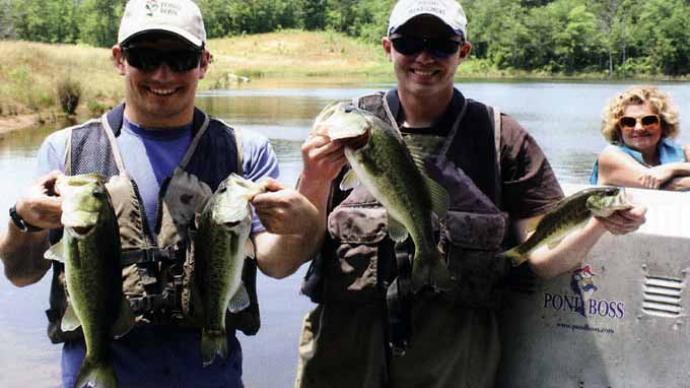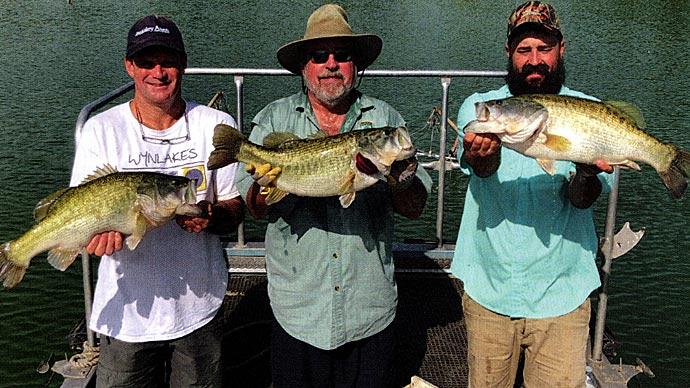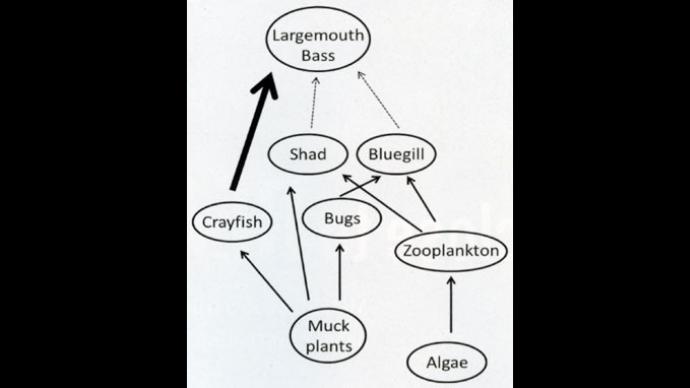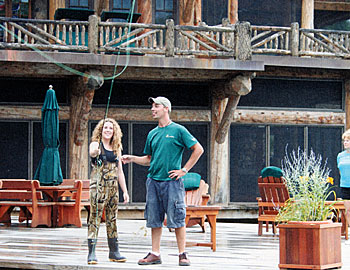
So many trite phrases, so little time to use them. Forgive me for a short moment, as I already feel a little contrite for being so trite, but are you stuck "in a box" with your pond management thought process? If so, it's time to own it, think about it, define it and see what it takes to get out of that proverbial "box".
I was recently invited to speak to the summer meeting of the South Dakota Game, Fish and Parks fisheries biologists along with a few state biologists from Nebraska in Yankton, South Dakota. I kept asking myself, "Why in the world would a fisheries guy, a private fisheries guy nonetheless, from Texas, be asked to speak to agency folks.. .in South Dakota?"
Maybe I was in my own box?
I've literally given hundreds of speeches about pond management, all over the nation to landowners, people who own ponds. That's in my wheelhouse, my box. I can do that with a moment's notice, with great confidence and comfort.
But, standing in front of a group of people who are charged with managing the natural resources of a state? What could I possibly tell them?
I thought about that way too much.
How dare I talk to them about fish? That's their wheelhouse, too.
The talk was to be titled, "It's Not About the Fish".
So, I decided to share some of my life's experiences doing what I do. Essentially, in private fisheries management, we must produce results...or get fired. Out of necessity, I have to think differently than they do. It doesn't matter if an agency gets results. Their success isn't measured in that way.
I challenged them...a little bit.
So, I'm passing that same challenge on to you. Start your thought process with the title of my South Dakota speech. "It's Not About the Fish". It's about the "IT".
Figure out your "IT". Answer that, first. Forty years ago, people in rural settings built ponds for livestock water. Now, ponds are built for a variety of purposes. What's the purpose of yours? What are your goals with it? What are you doing to proactively meet those goals?
As you define and re-define goals, question your methods. Are the results you are seeing the results you are expecting? If so, keep doing what you are doing. If not, identify your "box" and refine your thinking.

Here's what I mean. Years ago, I was challenged to take over a fisheries management project in upstate New York. A young biologist there was over his head and wasn't yet experienced enough to push this project to the next level. He was teetering with pressure to produce. I could see his hair beginning to turn gray under the stress. The guy he replaced was fired after six months on that job. That guy was Director of Inland Fisheries for the entire state of New York for a portion of his 30+ year career with the DNR. He didn't perform in this private sector opportunity, so he got fired. That rocked me to the core. If this guy, who knew the state of New York and its fisheries, got fired six months in, what in the world would a fish guy from Texas do? Well, I knew I couldn't do what he did.
So, I had to figure out the "box" at this place and get to the IT.
Of course, being the fisheries biologist, the first thing we did was sample lakes. The fish actually looked pretty good to me, for the shape they were in, in that environment, in that climate.
I kept asking myself, "What is IT? "
After too many conversations with the biologist and a growing relationship with the preserve manager, and several meetings with the landowner, IT finally hit me. It wasn't about the fish. Drilling into this project, a sentence was spoken that was the epiphany. One sentence. This sentence completely changed the way I think about fisheries management, to this day.
The preserve manager told me this, "A man high up in Italy's government was here fishing a few months ago, caught only one fish, a four inch bluegill". Over cocktails, he made fun of his catch to the owner.. .who was deeply embarrassed.
That was IT!
IT had nothing to do with the fishery or the lakes, or the property. IT was the experience. We immediately shifted our attention off of the fishery and onto the experience. For that project, we needed fishing guides, better equipment, digital cameras and presentation...and lots of fish on the business end of many fishing poles.
An event was scheduled three weeks out and we had to get ready.
There was work to do, which we did.
The group came, went through their meetings, and more than a dozen were lined up to go fishing that afternoon, around 5:00. Every one of them caught fish. They enjoyed nature, their time on the water, the professional treatment of their guides and the results, many of them catching their first fish, ever. They were excited, all of them. Smiles ruled the trip. Guides took photos, and afterward, while these new anglers showered and prepared for dinner, the guides printed photos, put them in frames and presented them at cocktail hour. The owner was beaming!
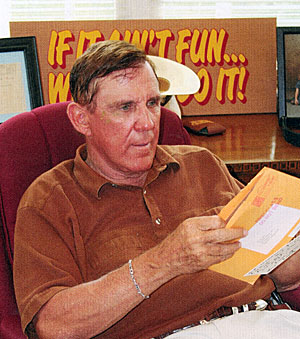
We'd done nothing to the fishery. . .yet.
We'd figured out the "IT" for this landowner.
He'd also challenged us to raise some huge bass, so we had to figure out how to go encourage Nature to help with that.
Another box.
After conferring with more than 20 experts in that region, I saw the box as; The growing season is too short for bass; Bluegill are a nuisance, not an asset; Genetics won't allow bass to grow to eight pounds. That was the box.
Through a chain of events, starting with a wine tasting, of all things, I started picking through those box items. At the wine tasting, the vineyard owner, from the Fingerlakes Region, lamented how puzzled he was, early on, when he saw his grapes bloom later than he expected, then grow too fast and ripen too early. He called his mentor in Napa. She explained that he has 125 or so perfect growing days, in a row. She had 125 perfect days, scattered over 250 days. The same growing day that's perfect for a bass parallels a perfect grape-growing day. In my mind, I dispelled the notion that the growing season for bass was too short. But, it certainly is for bluegill. In Texas, we have 320+ perfect bluegill days, so we get 4-5 spawns, making for the backbone of the food chain. In New York, 75 days, tops, for bluegills.
We zeroed in on the food chain, diversifying it, adding brood ponds to grow forage fish and supplement each lake with added forage, depending less on the lake to produce. We added younger fish with better genetics and went to work doing what we do to raise fish.
So, what's that mean to you?
Think about the conclusions you've drawn which have led you where you are. In order to do that, you need to understand where your pond stands. Are you really getting what you expect? If not, identify your box, look at each element in it and think about it at the next upward level.
For example, is your pond in harmony? Is your water happy and healthy? Just the right amount of plant life to add valuable habitat? Are your fish in good condition? The ratios as they should be? What about the experience? Are you having fun? I love a sign on Ray Scott's wall, "If It Ain't Fun, We Don't Do It." I love that sign.
On an even more important note, are you the steward you should be? If you are, keep it up! As your property matures under your watch, you'll see it. You'll see the pond mature with a thriving ecosystem and water teeming with fish. You'll see the area just above the waterline mature into a vibrant system that's a reflection of your management style and strategy. Then, vertically, up the hill, you'll see plants and wildlife that are attracted to the offerings of your thoughtful management strategy.
And, just think, much of this is because you've chosen to go above the simple advice. You've thought about it, studied, learned and applied what you've gathered.
But, always stay alert, because we still tend to find ourselves in some nice, comfortable, complacent little box.
Reprinted with permission from Pond Boss Magazine

